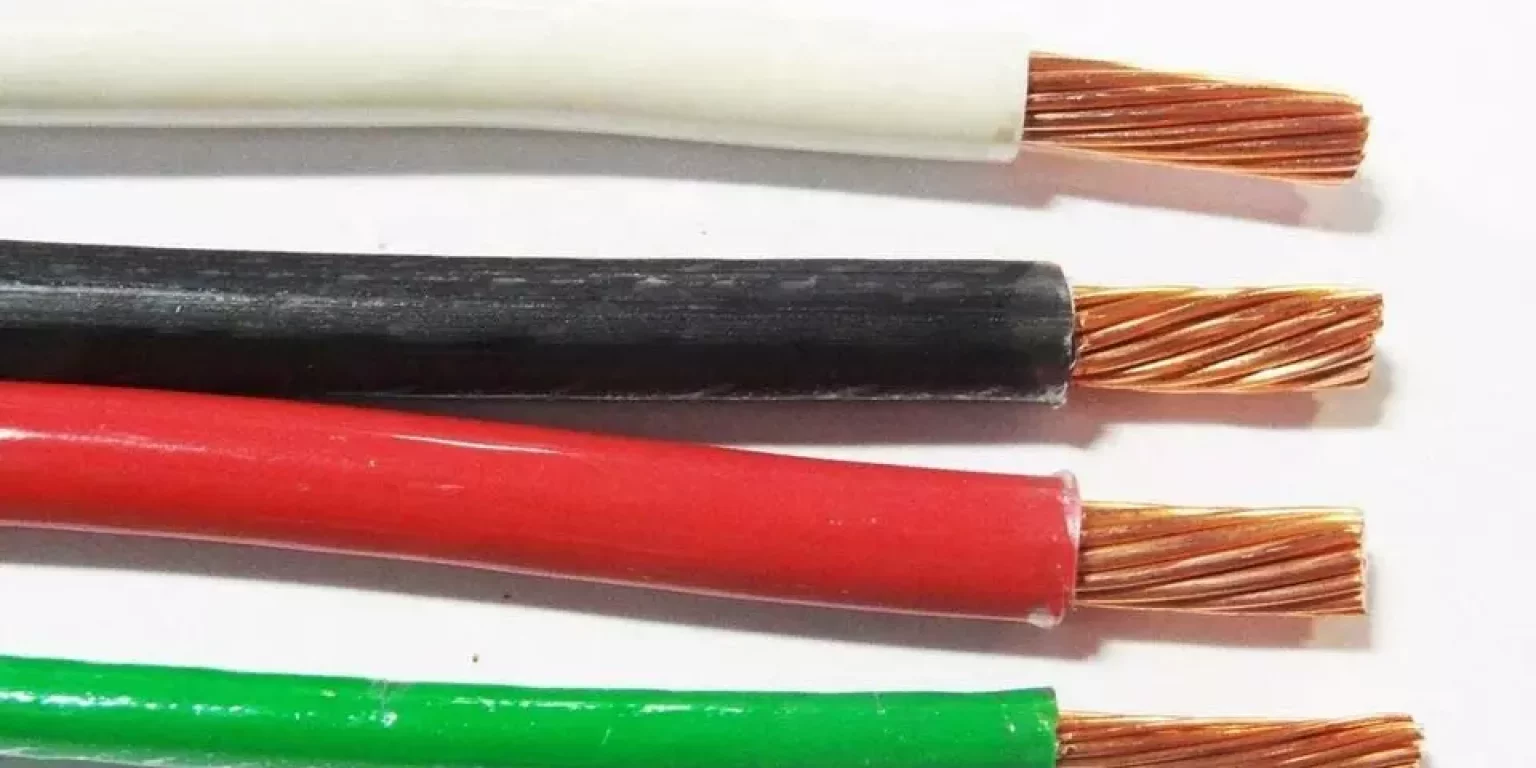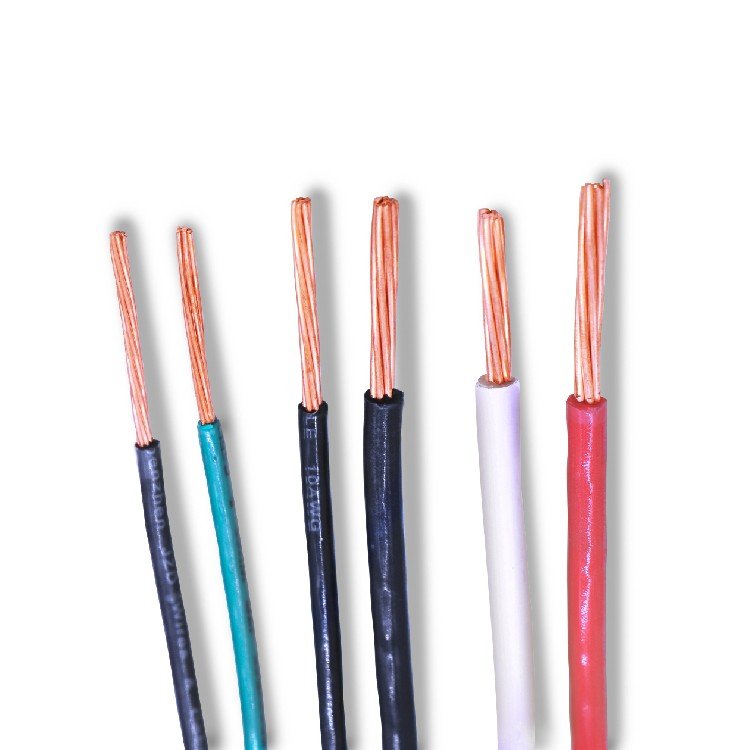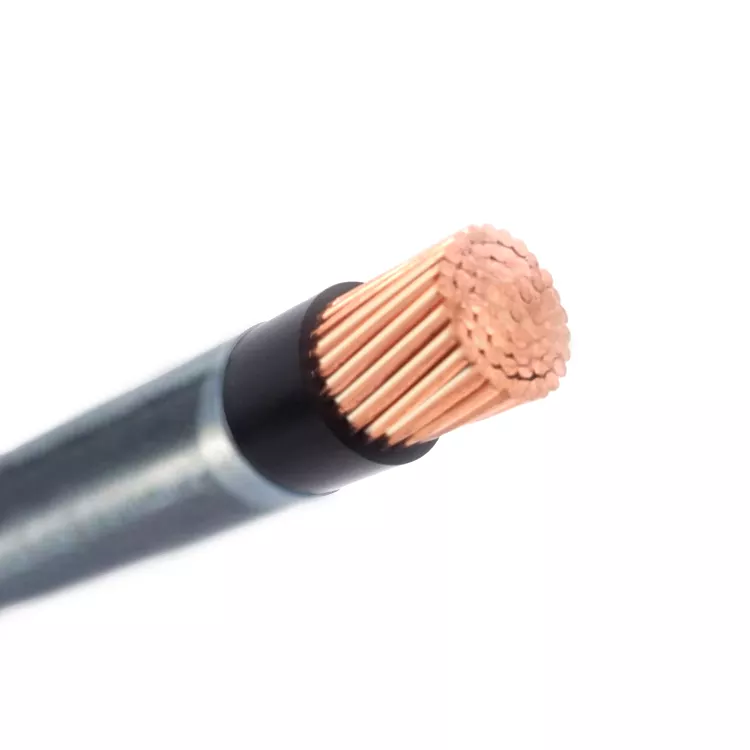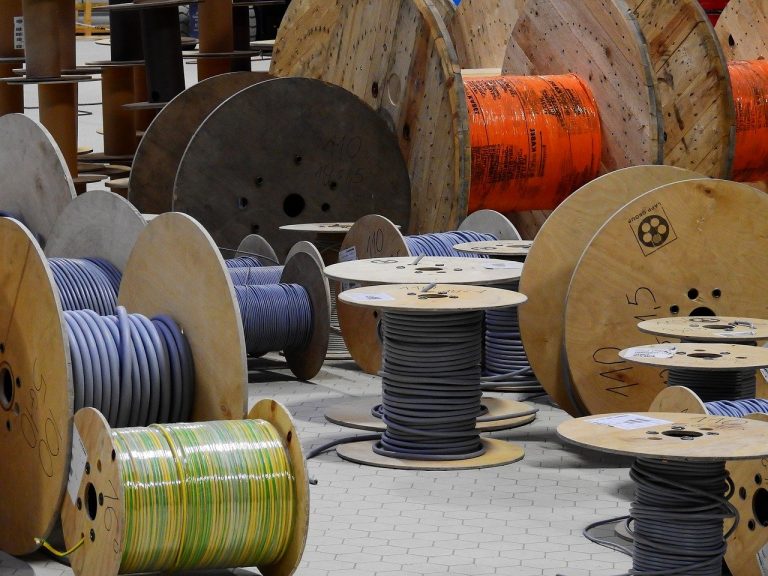From your office to your home, every building, every construction site, and virtually everywhere else, you find electrical work connected with metal wires.
But have you ever wondered what type of those metal wires is being used? The answer is THHN vs THWN! No matter the project, these two types of wires are the most common ones used for their electrical purposes and have a lot of differences between them.
But as we know, there are a lot of vague differences between the two, and it needs to be clarified for non-electrical people. Some think both types are the same, but that’s not true. This article will discuss the differences between THHN vs THWN and their usage and specifications.
What is THHN Wire?
Figure 1: Thhn vs Thwn ( Thhn Cable Diagram)
A Thhn/thwn wire meaning is different; THHN stands for Thermoplastic High Heat-resistant Nylon Coated wire. It is a single conductor wire made of copper with insulation rated at 90°C.
It is a versatile wire that can be used in dry locations at temperatures up to 90°C, as well as wet locations at temperatures not exceeding 75°C. It is usually used to carry electrical power in residential, commercial, and industrial buildings.
THHN meaning in electrical dictates its usage to provide power in residential, commercial, and industrial buildings. When we talk about THHN wire price, it usually ranges around 50-60 cents per foot, depending on the size and type of the wire.
Read More:Best THHN Wire For Building Application
What Does Thwn Mean?
Figure 2: Thhn Vs Thwn ( Thwn Cable Diagram)
After discussing the Thhn wire meaning, Thwn cable stands for Thermoplastic Heat and Water-resistant Nylon Coated wire. It is a single conductor wire made of copper with insulation rated 60°C in damp locations. THWN wires are mostly used in conduits as it offers better protection against water, oil, and chemicals than other types of cables.
Thwn conductors are usually used in underground wiring and other harsh environments. Due to their superior insulation, they are also often used as building wires in residential, commercial, and industrial applications.
Thhn Wire Vs Thwn Wire
Have you ever thought thhn or thwn wire? If so, you are not alone. Many types of electrical wiring are used in different applications, and it needs to be clearer known which type is right for what project. Thhn thwn wire are two of the most common types of electrical wiring used in residential and commercial buildings. While they may look similar to the naked eye, there are some important differences between the two:
- Wire Sheath
The first and most obvious difference is the type of insulation they use. Thhn wire insulation is with PVC (polyvinyl chloride), while thwn wire has a polyethylene sheath. The polyethylene sheath provides more protection from water, oil, and dirt than PVC. If you are working on a project in an outdoor or damp environment, thwn is usually the better choice.
- Conductor Type
Thhn vs thwn wire also have different conductor types, which can affect the performance of your electrical system. Thhn is made with a solid metal conductor and can be used stranded condutor, while thwn has stranded conductors.
Stranded conductors are usually better for high-flex applications like wiring motors and fixtures, as they are more flexible and less likely to break. Thwn conductor types are also a bit more expensive than thhn. Pvc insulation and nylon jacket thwn wire provide more flexibility and easy installation. Thhn conductor type is also ideal for indoor wiring applications, whereas thhn conductor type is better outdoors.
- Executive Standard
To understand the thwn thhn difference, it is important to know the executive standard governing these wires. Thhn wire is usually manufactured to NEMA standards, while thwn wire adheres to UL 83 and UL 1063 standards. Depending on the application you are working on, one of these standards may be more suitable than the other.
Thhn vs thwn are two different wires that carry the no.of differential factors between the two, including insulation type, conductor type, and executive standard. The right choice depends on the specifics of your application. If you need help selecting thhn or thwn wire, discuss it with a qualified electrical engineer.
What Is Thwn Wire Used For?
The applications of the THWN wire are widespread, and it is used for indoor and outdoor applications. Some include:
- Commercial Wiring
Commercial areas usually require high-heat-resistant wires like THWN. This is because they are exposed to more electricity and need this wire’s extra insulation.
- Residential Wiring
The indoor areas in residential buildings usually require wires with less heat resistance, like THWN-2. Thwn-2 vs thwn and thhn vs thwn-2 are very similar, but the latter have more heat resistance.
| THHN | THWN | THWN-2 |
|---|---|---|
| T = Thermoplastic | T = Thermoplastic | T = Thermoplastic |
| HH = High Heat Resistance | H = Heat Resistance W = Water Resistance | H = Heat Resistance W = Water Resistance |
| N = Nylon Coating | N = Nylon Coating | N = Nylon Coating |
| Temperature Rating = 90°C (Dry) | Temperature Rating = 90°C (Dry), 75°C (Wet) | Temperature Rating = 90°C (Dry & Wet) |
- Industrial Wiring
Industrial areas usually need wires with extra insulation and flexibility like THWN. This is because industrial equipment often generates more electricity than residential or commercial areas and requires wires with higher temperature-resistant capabilities.
- Motors And Furnaces
Motors and furnaces require THWN wires because of their high heat resistance. They are also more flexible than other types of wire, making them easier to use in tight areas. Thwn wire sizes vary depending on the application and the amount of current it needs to carry.
THHN Vs. THWN Price: How Much Does It Cost?
Price is the most significant difference between THHN wire and THWN wire. THHN is a cost-effective choice for indoor electrical wiring, while the latter is for outdoor use and carries a higher price tag.
Thhn wire price is the more economical choice, with the average price per foot ranging from $0.10 – $0.3.For example 12 thhn wire cost $0.15 per foot. Thwn wire, on the other hand, usually costs around $0.20 – $0.25 per foot because it is an all-weather insulation material that can withstand extreme temperatures and weather conditions.
In THHN wire specifications, insulation is not as durable and weather-resistant as THWN wire insulation. This means that the former must be installed inside an enclosure or conduit to protect it from moisture and other elements. At the same time, the latter can be exposed to the elements without any additional protection.
- Thhn Vs XHHW
We know you are also searching for the difference between Xhhw and Thhn, then you are in the right place. Xhhw is an abbreviation for Cross-Linked High Heat-resistant Waterproof.
This type of wire is mostly used in applications requiring higher resistance to heat, moisture, and chemicals than Thhn can offer. In addition, this type of wire has better flame retardant properties and is UL-approved.
XHHW and THHN are very similar in many ways. Both electrical wires are insulated with polyvinyl chloride (PVC) jacket and consist of a single copper conductor. The difference between THHN and XHHW lies in the insulation material used on each of them.
While XHHW cable has an improved heat resistance compared to THHN, the latter offers more flexibility and is ideal for applications where the wire will be bent or curved.
Below are some differential points of thhn with other types of wires:
Thhn vs Tffn | Tffn Stands for Thermoplastic Flexible Fixture Nylon. Tffn has much higher heat-resistance capabilities than thhn and is much more flexible. |
Thhn vs Awg | American Wire Gauge (AWG) has smaller diameters than thhn. |
Romex vs Thhn | Romex is a type of electrical cable that contains multiple insulated conductors, while THHN consists of only one insulated conductor. |
Aluminum Thhn vs xhhw | Aluminum THHN has a much higher heat resistance than xhhw. |
Thhn vs Thwn: Which One Is Better?
Every electrical project needs to include the right type of wiring, which is why it’s important to understand the difference between THHN vs THWN. Both are similar types of wire insulation but have different properties and characteristics that make them suitable for different applications.
The most basic distinction between the two is that THHN wire has a nylon outer coating, while THWN wire has a polyvinyl chloride (PVC) outer coating. The nylon jacket on the THHN wire provides better heat, flame resistance, and durability in wet environments.
THHN is typically used for indoor applications where moisture isn’t an issue, such as in drywall or along baseboards. However, if you want a wire that can withstand the elements, THWN is your best bet. This type of insulation is better suited for outdoor projects, such as wiring a shed or running lines through the yard.
THHN vs THWN wires also differ in cost. Before buying any wire, compare prices from multiple suppliers to get the best deal. You should also consider the specifications of each type to ensure it meets your project’s needs. The better one is always the one that meets the project requirements.
Conclusion
Your next electrical project may require you to choose between THHN vs THWN wires. Knowing the differences in their construction, available sizes, pricing, and applications will help ensure that your choice is the correct one for your particular application.
The above-crafted blog should give you a better understanding of the THHN vs THWN wires so that you can make an informed decision for your project.
If you still need professional advice, ZW Cable is a great choice. Our experienced and knowledgeable team is here to help you make the best decision for your project, so feel free to contact us at any time.
With comparative prices and fast delivery, ZW Cable will be your one-stop shop for all your electrical needs.
Last Updated on December 10, 2022 by Richard





